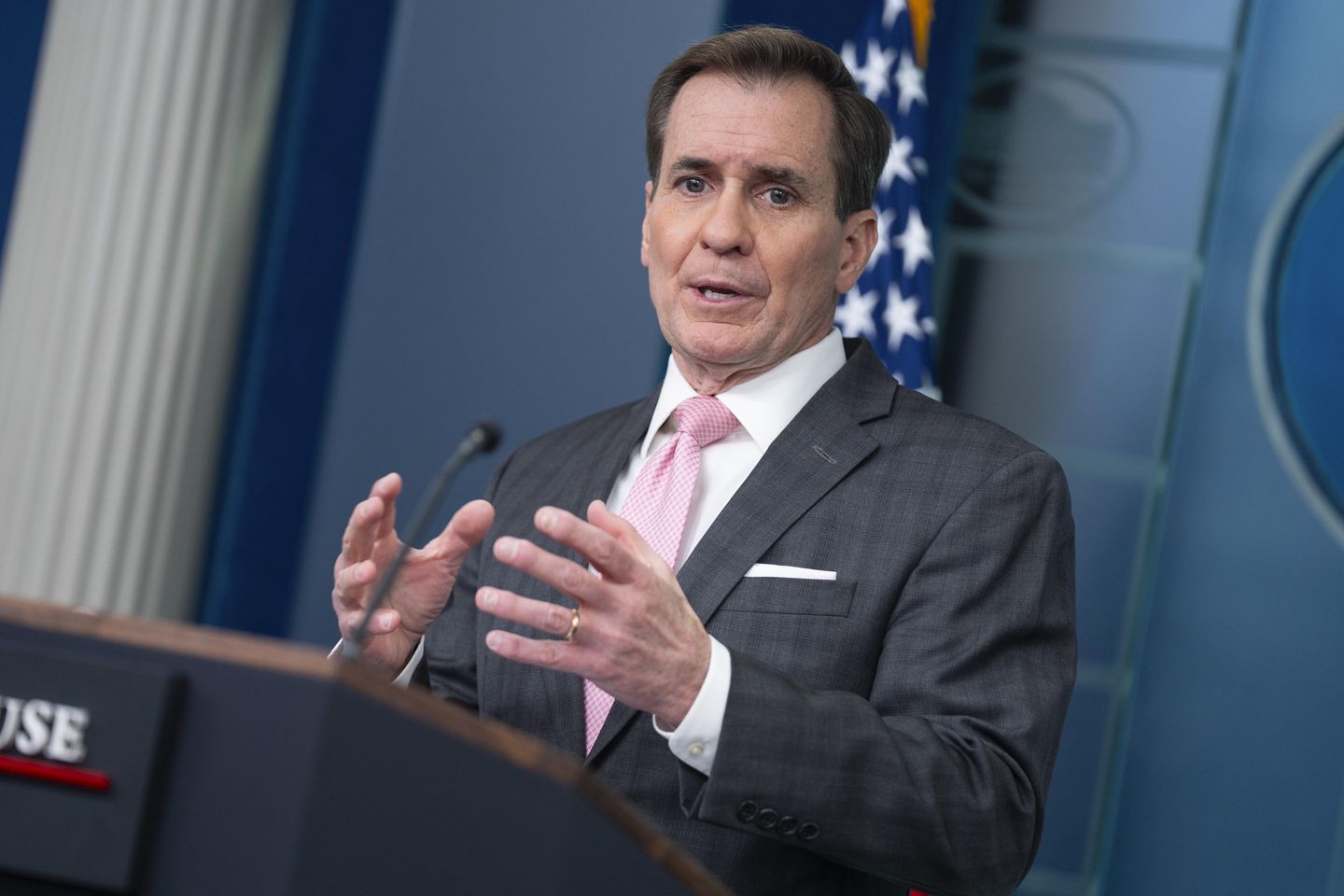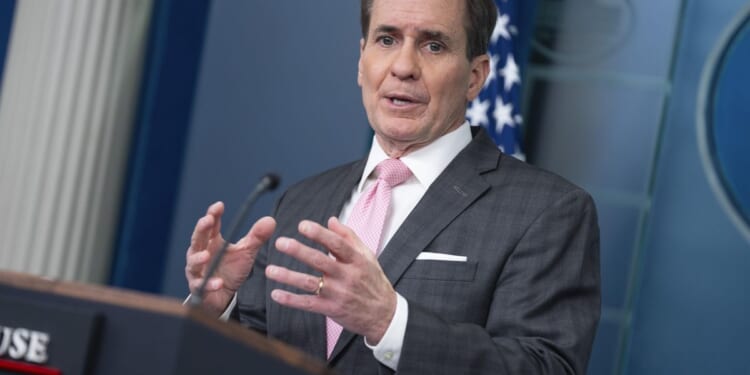
The White House confirmed Thursday that Russia is developing a space-based military capability that poses a national security threat, but insisted there is no immediate danger to the U.S.
“Though Russia’s pursuit of this particular capability is troubling, there is no immediate threat to anyone’s safety,” White House spokesperson John Kirby told reporters. “We are not talking about a weapon that can be used to attack human beings or cause physical destruction here on Earth.”
Mr. Kirby declined to offer specifics about the threat beyond saying it is an “anti-satellite capability” that is not yet active. He declined to address reports that the threat is “nuclear capable.”
It was the most forthcoming the White House has been about the supposed space weapon, after an unusual and cryptic public statement Wednesday by House Intelligence Committee Chairman Mike Turner touched off a day of fevered speculation.
Mr. Turner, Ohio Republican, called on the Biden administration to declassify the threat to make it available to all members of Congress and the public. He said the U.S. and its allies need to discuss how to respond.
On Thursday, Mr. Kirby said the intelligence community has raised several concerns about sharing information on the threat, saying it could compromise sources and methods. He said it was “regrettable” that the news found its way into the public.
“Now is not the time to go into more detail,” he said.
Mr. Kirby said the administration has taken several actions to address the threat, including opening up diplomatic talks with Russia as well as U.S. allies.
The episode has generated some blowback for Mr. Turner, who has served in the House since 2003.
Some national security analysts said Mr. Turner’s handling of the matter was both unnecessary and potentially dangerous.
“The threat, it turns out, relates to Russia’s attempts to build a space-based anti-satellite nuclear weapon. The key word is ‘attempts’ — the capability is still under development and has not been deployed. There is, in short, no urgent threat,” said Elizabeth Goitein, senior director of the Liberty & National Security Program at New York University’s Brennan Center for Justice.
Ms. Goitein said the public disclosure may have been a blow to U.S. intelligence-gathering efforts. She also said that Mr. Turner may have been attempting to undercut efforts in Congress to reform the Foreign Intelligence Surveillance Act’s Section 702, which gives the government broad powers.
Mr. Turner “made a public statement that frightened the American people, may have compromised intelligence sources, and was wholly unnecessary given the absence of any urgent threat, in order to gin up a new (bogus) argument against Section 702 reform,” Ms. Goitein said.
Rep. Andy Ogles, Tennessee Republican, accused Mr. Turner of “reckless disregard” for the consequences of his move and urged House Speaker Mike Johnson to open a probe into the impact of it.
Mr. Ogles, too, suggested that his colleague’s move was meant to bolster passage of Ukraine aid and reforms to the Foreign Intelligence Surveillance Act, which has been mired in a dispute between warring House panels on how to best deal with concerns about Americans’ privacy.
“In hindsight, it has become clear that the intent was not to ensure the safety of our homeland and the American people, but rather to ensure additional funding for Ukraine and passage of an unreformed Foreign Intelligence Surveillance Act,” Mr. Ogles said. “This act constituted poor judgment at a minimum and a complete breach of trust influenced by the pursuit of a political agenda at a maximum.”
• Alex Miller contributed to this story.












